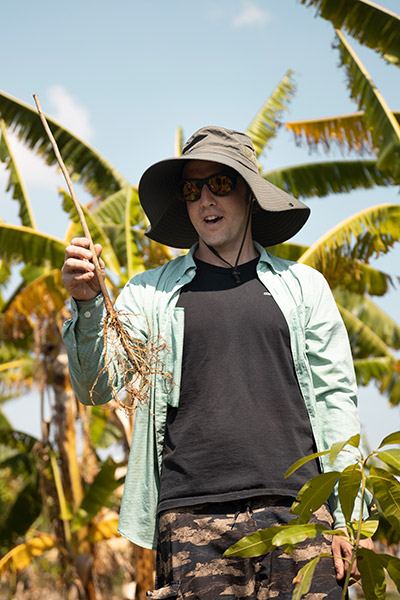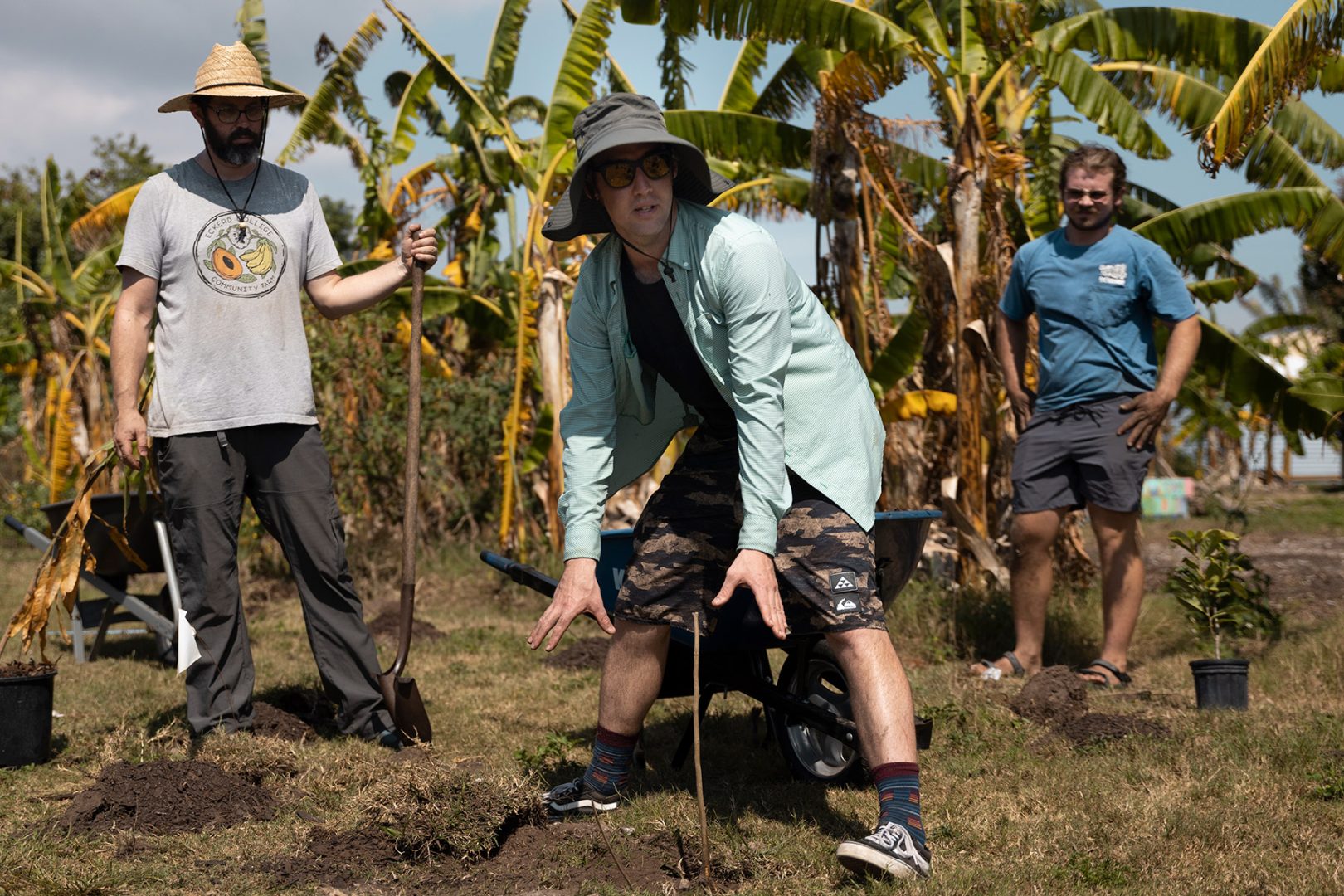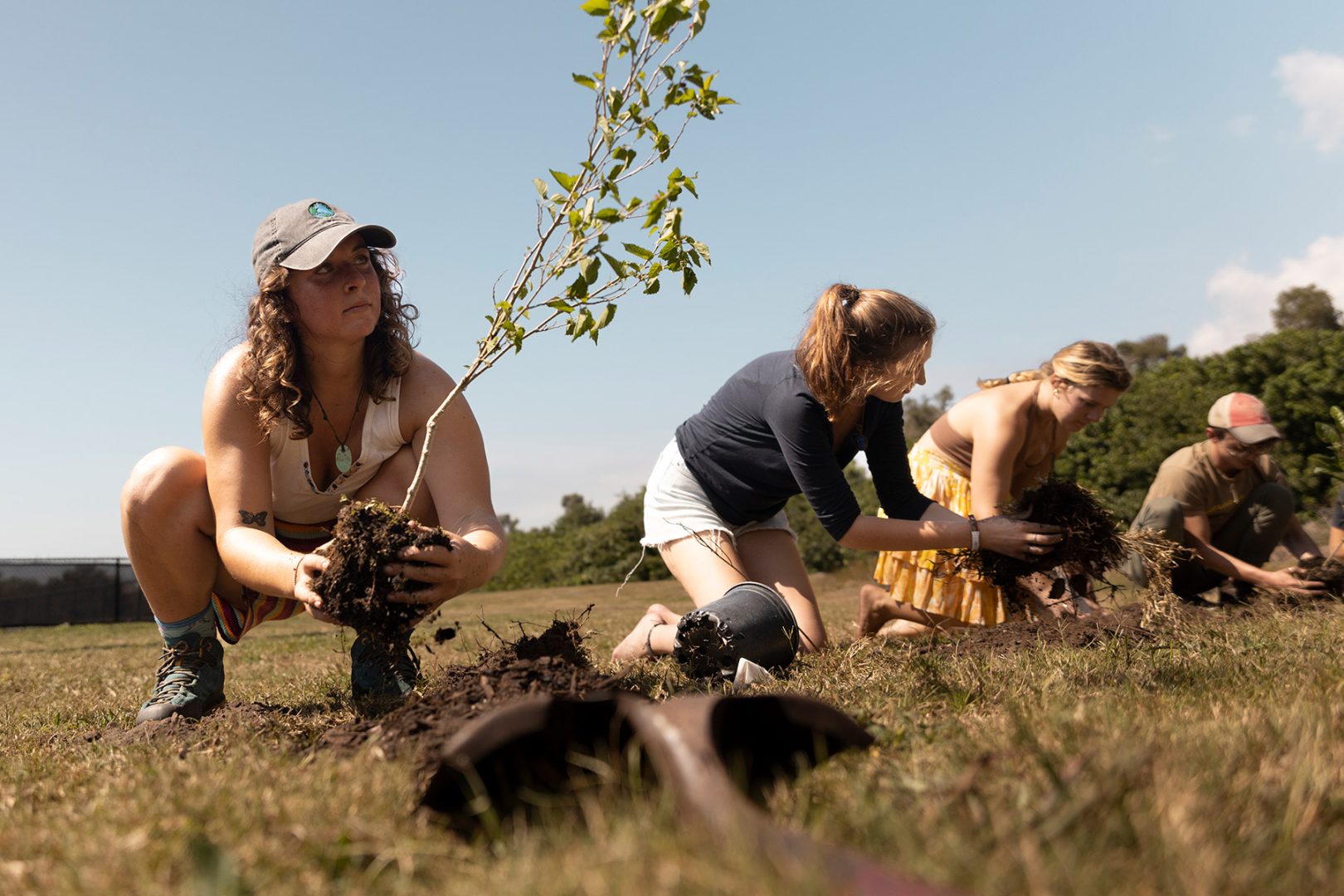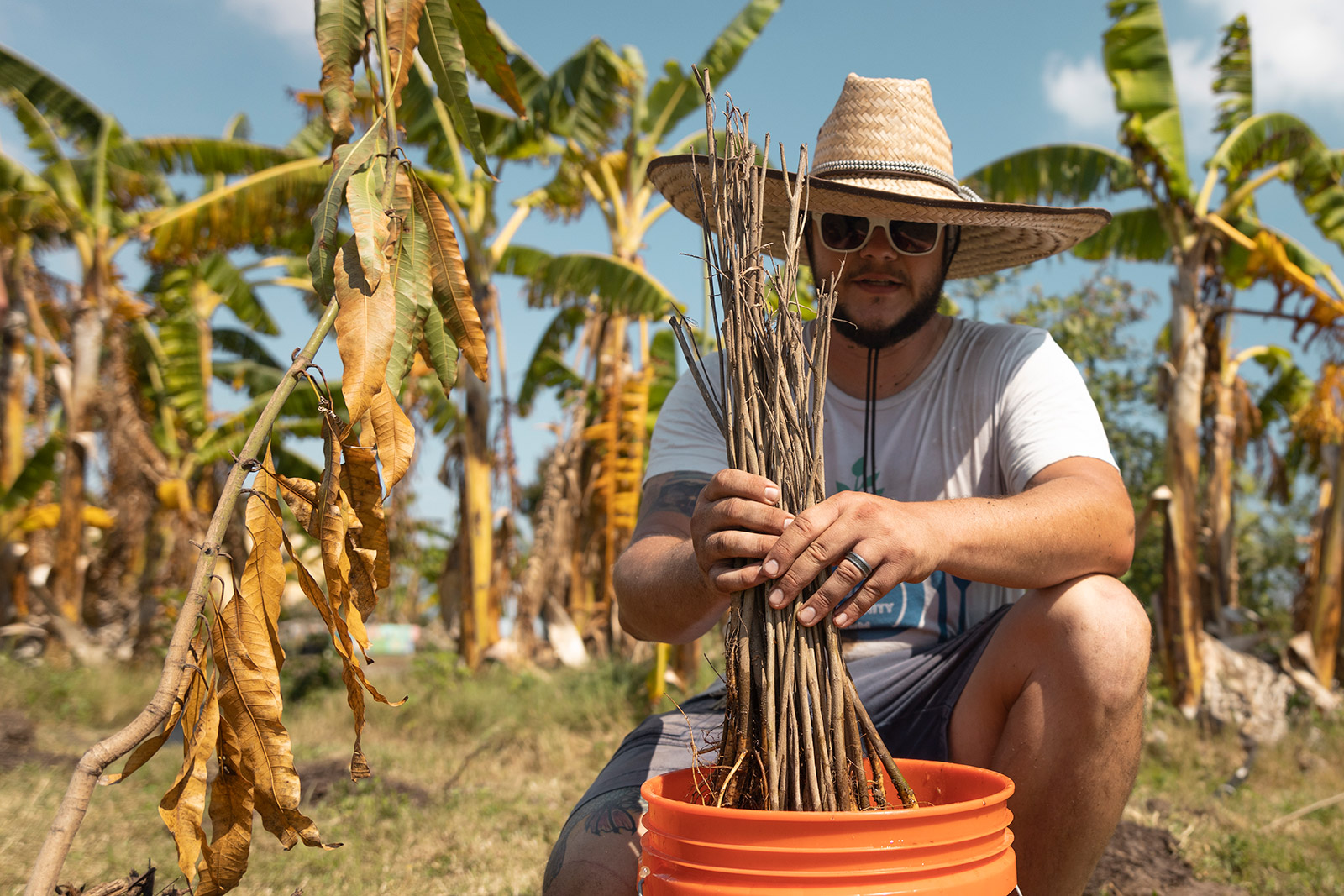Thomas Leonard, a 2012 graduate of Eckerd College, pointed to a 40-foot bald cypress tree near the edge of the College’s community farm, and a grin sneaked across his face. “I planted that back in 2010 or 2011,” he said. Now he was back at his alma mater, planting again. In a big way.
Thomas set out to plant 500 seedlings in and around the farm during the annual Reunion Weekend, Feb. 23 through 26, with help from David Himmelfarb, Ph.D., farm co-founder and faculty director; Farm Manager Jon Prieto; Eckerd students and alumni; and anyone else who dropped by to lend a hand. The seedlings were a variety of native and non-native fruit-bearing trees—persimmon, false indigo and loquat—in addition to bald cypress. Sugarcane plants and blackberry bushes also were scheduled to be planted.
Until recently, Thomas was managing a 350-acre farm in Brevard, North Carolina. He also works with Contour Lines, a nonprofit that provided funding for the Eckerd trees. Contour Lines Corp. also provides working grants to farmers, primarily in Guatemala. “We just planted a million fruit trees in Guatemala, and we will have planted about 7 million by 2025,” Thomas said. “The goal is to encourage the indigenous people to learn about soil conservation methods and move away from practices like slash and burn.”
Back at Eckerd, volunteers began digging holes for the trees on an unusually warm Friday morning. For compost, the campus farm is using food waste from the cafeterias and dorms.

Thomas Leonard, Class of 2012
“We’re trying to get our ecosystem to work for us, not against us,” explained Himmelfarb, who also is an environmental studies instructor and internship coordinator at Eckerd.
Zoe Sabadish, a junior environmental studies and visual arts major from Rehoboth Beach, Delaware, and one of the leaders of the Eckerd College Garden Club, leaned against her shovel and looked down a row of freshly dug holes. “I’m really grateful that this is here,” she said. “To plant fruit trees that some people have never seen, and then to leave something for future students … it’s great to be able to keep that cycle going.”
The 1-acre plot between the Johnson Athletic Field and the baseball diamond was first adopted by the Garden Club in 2010 with a vision of turning the space into a learning ground for novices to gain information about and experience with sustainable agriculture. Club members created raised beds, planted banana and mango trees, started a composting program, filled plots with anything that would grow in the Florida climate, and watched the results.
“We’re really interested in connecting different generations of students,” added Himmelfarb. “It’s so great to have students come back years later and say, ‘I remember planting that.’”















